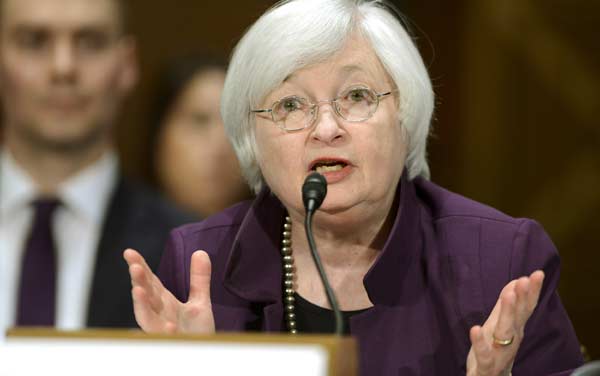Distraction of Greece aside, is all well with the world economy?
(Agencies) Updated: 2015-07-19 20:20
LONDON - The race is on between the US and British central banks to be the first major economy to raise interest rates after a long period of unprecedented monetary generosity.
It won't happen immediately but both Janet Yellen, who chairs the US Federal Reserve, and Bank of England Governor Mark Carney signalled in the past week that higher rates are close.
Not everything in the world economy, however, is as sanguine as the US and British economies would appear to be.
In the euro zone, European Central Bank President Mario Draghi has promised rock-bottom interest rates for the foreseeable future and pledged to see through the bank's monthly 60 billion euro asset purchases until September next year.
In Asia, China's policymakers are struggling to contain stock market mayhem that could still undermine attempts to reverse a growth slowdown.
Japan is still embarked on a massive quantitative easing asset-buying program and has just cut its growth outlook.
Elsewhere, countries as diverse as Sweden, South Korea, Guatemala and Azerbaijan have cut rates over the past three to four weeks. Group of Seven economy Canada, Washington's closest developed trading partner, surprised by easing this past Thursday.
In all, 37 central banks around the world have eased monetary policy so far this year to boost growth, fight deflation or both.
Influential though they are, the Fed and BoE are outliers.
- Greek faces tough conditions under deal with euro zone
- Agreement on Greece debt deal reached at euro zone summit
- Industrial Bank lowers interest rates for mortgage loan
- Reserve ratio or interest rates cuts more likely in June: analysts
- Central bank slashes interest rates again
- China cuts interest rates to bolster real economy







